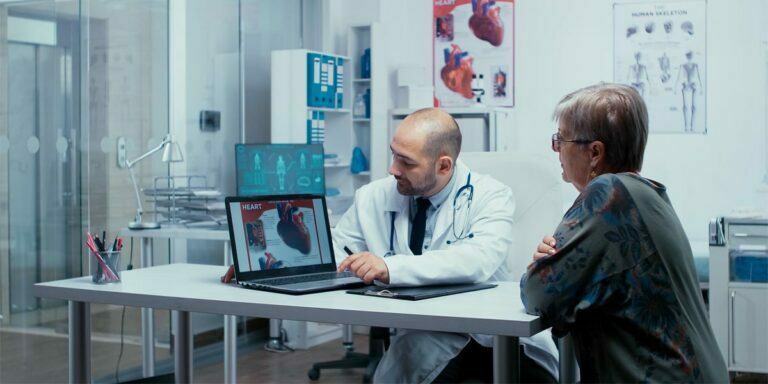Chronic care management (CCM) is a critical aspect of healthcare, aimed at improving the health outcomes of patients with chronic conditions through proactive and coordinated care. Implementing a successful CCM program involves various strategies and best practices to ensure effective patient management, engagement, and satisfaction.
Here are seven best practices for an effective chronic care management program:
1. Comprehensive Patient Assessment
A thorough and continuous patient assessment is the foundation of any effective CCM program. This includes understanding the patient’s medical history, current health status, and specific needs. Regular assessments help in tailoring the care plan to the patient’s evolving conditions and in identifying any potential complications early. For example, using tools such as electronic health records (EHRs) and health risk assessments can help identify high-risk patients and customize care plans accordingly.
Detailed Assessment Tools
Incorporate validated assessment tools and risk stratification methods to evaluate patient needs comprehensively. Using tools such as the Charlson Comorbidity Index or the Chronic Illness Care Index helps in categorizing patients based on their health status, thereby facilitating targeted interventions.
2. Personalized Care Plans
Creating individualized care plans based on the comprehensive assessment ensures that each patient’s unique needs are addressed. Personalized care plans should include specific goals, interventions, and timelines, ensuring that all aspects of the patient’s health are considered. Regular reviews and adjustments to these plans are crucial for maintaining their relevance and effectiveness.
Tailored Interventions
Tailor interventions to address the social determinants of health (SDOH), such as housing, transportation, and access to nutritious food. By addressing these factors, healthcare providers can remove barriers to effective care and improve patient outcomes. For instance, incorporating telehealth services can help patients in remote areas receive timely care.
3. Patient Engagement and Education
Engaging patients in their care is vital for the success of CCM programs. Educating patients about their conditions, treatment options, and lifestyle changes can empower them to take an active role in their health management. Utilizing technology, such as patient portals and mobile apps, can enhance engagement by providing easy access to health information and communication with healthcare providers.
Continuous Communication
Implement regular follow-up calls, text messages, or emails to remind patients about appointments, medication schedules, and health check-ins. These touchpoints can keep patients engaged and informed, thereby improving adherence to treatment plans.
4. Utilization of Advanced Technology
Incorporating advanced technology, such as Remote Patient Monitoring (RPM) and telehealth services, can significantly enhance the management of chronic conditions. These technologies enable continuous monitoring of patient health data, timely interventions, and better coordination of care. RPM devices can track vital signs, medication adherence, and other health metrics, providing real-time data to healthcare providers.
Integration with EHR Systems
Ensure that RPM devices and telehealth services integrate seamlessly with the existing EHR systems. This integration facilitates the easy exchange of patient data, enabling healthcare providers to make informed decisions based on comprehensive health information.
5. Data Accuracy and Security
Telehealth cybersecurity is very important. Ensuring the accuracy and security of patient data is paramount. Implementing robust data management systems and adhering to HIPAA regulations protect patient information and maintain the integrity of health records. Regular audits and updates to security protocols help in safeguarding data against breaches and inaccuracies.
Regular Data Audits
Conduct periodic audits of data entries and system logs to identify and rectify any discrepancies. This practice ensures that the data used for patient care and billing is accurate and up-to-date, minimizing the risk of errors and fraud.
6. Multidisciplinary Care Teams
A multidisciplinary approach brings together various healthcare professionals, including doctors, nurses, pharmacists, and specialists, to provide comprehensive care. Collaboration among team members ensures that all aspects of the patient’s health are addressed, leading to better outcomes. Regular team meetings and communication are essential for effective coordination of care.
Coordinated Care Plans
Develop coordinated care plans that involve input from all team members. This approach ensures that every aspect of the patient’s health, from medication management to lifestyle changes, is addressed comprehensively.
7. Continuous Monitoring and Improvement
Regularly monitoring the effectiveness of the CCM program and making necessary adjustments based on patient feedback and health outcomes is crucial. Using analytics to track performance metrics and patient progress can identify areas for improvement. This continuous improvement process helps in adapting to new challenges and ensuring the program’s long-term success.
Performance Metrics
Utilize performance metrics such as patient satisfaction scores, hospital readmission rates, and health outcome measures to evaluate the success of the CCM program. Regularly review these metrics to identify trends and make data-driven improvements.
Integrating DrKumo Solutions with Chronic Care Management Programs
DrKumo offers innovative digital health solutions that align perfectly with the best practices of chronic care management (CCM) programs. DrKumo’s platform enhances patient engagement through user-friendly mobile apps and provides advanced RPM devices that integrate seamlessly with electronic health records (EHR) systems. This integration ensures continuous monitoring, accurate data collection, and timely interventions, which are crucial for effective CCM.
Additionally, DrKumo’s secure, HIPAA-compliant data transmission safeguards patient information, maintaining data integrity and compliance with regulatory requirements. By utilizing DrKumo’s technology, healthcare providers can support multidisciplinary care team coordination and continuous improvement in patient care, ensuring high-quality, patient-centered outcomes. For more information, visit Remote Patient Monitoring in CA, Disease Management Protocols, and Chronic Care Management
Conclusion
Implementing these best practices in chronic care management programs can lead to improved patient outcomes, enhanced patient satisfaction, and better management of chronic conditions. By focusing on comprehensive assessments, personalized care plans, patient engagement, advanced technology, data security, multidisciplinary teams, and continuous improvement, healthcare providers can deliver high-quality, effective care to their patients.
To learn more about how DrKumo’s innovative solutions can enhance your chronic care management program and help you implement these best practices, contact DrKumo at info@drkumo.com or visit their website at DrKumo.
Disclaimer: This content is for informational purposes only and should not be considered medical or legal advice. Always consult with a qualified healthcare provider or legal professional regarding any medical or compliance questions.








